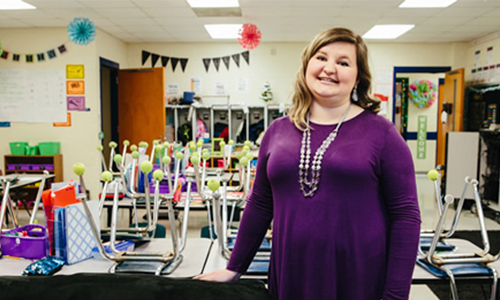

This study investigates whether rapid guessing is a stable trait-like behavior or if rapid guessing is determined mostly by situational variables, and whether rapid guessing over the course of several tests is associated with certain psychological and background measures. We find that rapid guessing tends to be more state-like compared to academic achievement scores, which are fairly stable and that repeated rapid guessing is strongly associated with students’ academic self-efficacy and self-management scores.
By: James Soland, Megan Kuhfeld
Topics: Measurement & scaling, School & test engagement, Social-emotional learning


Summer learning loss: How teachers mobilize when kids return to school
NWEA researcher Megan Kuhfeld connected with Sonali Kohli of the LA Times to discuss summer learning loss.
Los Angeles Times
Mentions: Megan Kuhfeld


A ‘one-size-fits-all’ approach to English-Learner education won’t work. Here’s why
Education Week interviewed Angela Johnson about her research showing the diverse academic and linguistic needs of English-learners, and how schools can better serve the needs of EL students.
Education Week
Mentions: Angela Johnson
Topics: Equity, English Language Learners


5 Guiding Principles for Improving Reading Fluency Assessment
This Michigan Association of Superintendents and Principles blog post examines 5 Guiding Principles for Improving Reading Fluency Assessment
Topics: Test design, Academic content, Reading & language arts


Simulation study for evaluating MAP Growth item pools with grade-level constraints
This simulation study examines the measurement precision, item exposure rates, and the depth of the MAP Growth item pools under various grade-level restrictions.


Why we’re all-in on student test engagement
A lack of test engagement can negatively impact scores. Learn about NWEA’s work to prevent and mitigate impacts of rapid guessing.
By: Steven Wise
Topics: School & test engagement, Innovations in reporting & assessment


When does inequality grow? A seasonal analysis of racial/ethnic disparities in K-8 learning
If achievement gaps between demographic groups change during times when school is out of session, then educators and policymakers have a reason for concern about educational equality during the school year. A large study using data from NWEA takes a broader, more in-depth look at the summer achievement gap and has uncovered some meaningful results.
Getting Smart
Mentions: Megan Kuhfeld


